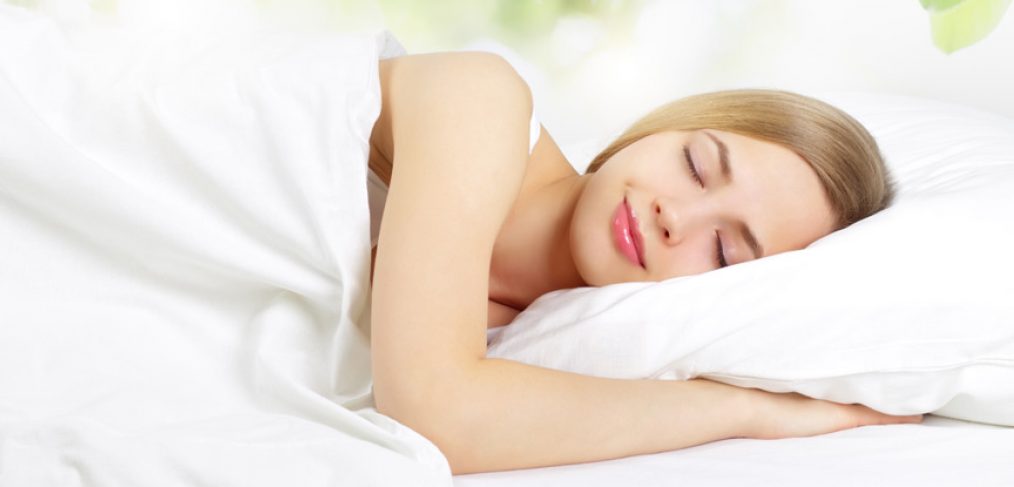
5 Holistic Tips for a Better Night’s Sleep
We’ve all had a sleepless night now and again. Maybe the new promotion, the big move, or your daughter’s impending graduation kept your mind racing. Maybe that burrito you had for dinner wants to fight. Maybe the neighbors are just too loud. But if your sleeplessness is something more than the occasional restless night, it could be doing irrevocable harm to your mind and body. Chronic insomnia has been linked to all sorts of negative impacts on a person’s health from their mental well being to their waistlines.
Keep reading to learn the risks and for 5 tips you can use to sleep better tonight.
Little-Known Effects of Insomnia
There are side effects of insomnia we all know about:
- Grogginess
- Lethargy
- The inability to focus
But there are also effects that are less well-known—effects that could dramatically impact your long-term health and happiness. Insomnia (if it occurs regularly) can lead to or contribute to:
- Heart disease
- Chronic pain
- Asthma
- Overactive thyroid glands
New research even suggests that prolonged insomnia may play a role in the onset of Alzheimer’s and Parkinson’s diseases.
Insomnia and Weight Gain
One of the most common side effects of sleep deprivation is obesity. The amount of time you spend in deep sleep (or not) can make it nearly impossible for you to lose weight. In fact, you may even gain unwanted pounds.
- During a normal sleep pattern, Ghrelin (the “Hungry Hormone”) is regulated so you can easily fall asleep without hunger pangs. When your sleep pattern is disrupted, you may eat even when you’re not really hungry.
- Sleep deprivation also raises the levels of the stress hormone Cortisol. Cortisol essentially tells your body to go into crisis mode and store fat (usually in the belly area), rather than burn calories.
- Insomnia tricks your metabolism (specifically the mitochondria—or cellular powerhouses) into slowing down. The result is you burn fewer calories even with the same diet and exercise.
How little sleep is too little sleep? A study (the results of which were presented at the Endocrine Society national meeting in 2015) suggests that getting just 30 fewer minutes sleep may increase your risk of obesity!
But, there are a number of easy life changes you can make to get a better night’s sleep and avoid all of these unwanted effects of sleeplessness.
The Holistic Approach to Occasional Insomnia
1. Reduce Screen Time
Unnatural blue light—given off by televisions and mobile devices—can “trick” your brain and mess with your natural sleep/wake cycle. Limit your screen time near bedtime and help your body’s natural cycle reset.
2. Nightly Meditation
You don’t have to sit in the lotus position chanting “ohms.” Any sort of mindful meditation (such as guided—available via apps like HeadSpace, journaling, or even prayer) has a calming effect on your mind and body. Practice just 20 minutes of meditation at bedtime to let your mind “put away” the day and lower your physical anxiety for an easier and more restful sleep.
3. Take Probiotics
Probiotic bacteria are great for a number of reasons, but did you know they can help you sleep? They naturally increase levels of tryptophan. (That’s the chemical compound found in turkey everyone blames for their after dinner nap on Thanksgiving). Tryptophan actually morphs into serotonin (the “Feel Good” hormone), and then into melatonin (the “Sleep” hormone) which gently tells your body it’s time for bed.
Probiotics also reduce levels of cortisol in your blood stream!
4. Eat Right and Sleep Tight!
Natural fruits like bananas and cherries, nuts like almonds and peanut butter, and whole grain breads or cereals contain protein, carbs, and helpful chemicals (like magnesium, tryptophan, and melatonin) respectively.
Like tea? It works too, just choose a decaf calming blend like chamomile or passionfruit. Combined, these compounds can help ease you into sleep and make insomnia a thing of the past.
5. Sleep Right
Doctors recommend side sleeping for the most restful and lasting sleep. It’s the least stressful position on your body’s joints. For added comfort you can place a small pillow or cushion between your knees to support your hips. If you’re not a side sleeper, flat on your back is the next best position. Place a soft pillow, rolled towel, or foam support under your knees to help align your spine.
Sleeping on your stomach is not recommended as it places stress on your neck, back, shoulder, and hips!
Better Sleep Means a Healthier Life
By following these 5 holistic tips for a better night’s sleep you’ll fall asleep faster, stay asleep longer, and get that essential “reset” your body needs to function at peak performance. You’ll also be retraining your metabolism to work more efficiently and balance the chemicals in your body to burn more fat and calories automatically. Plus you’ll be bright-eyed, and have more energy to live a busy, active lifestyle.
